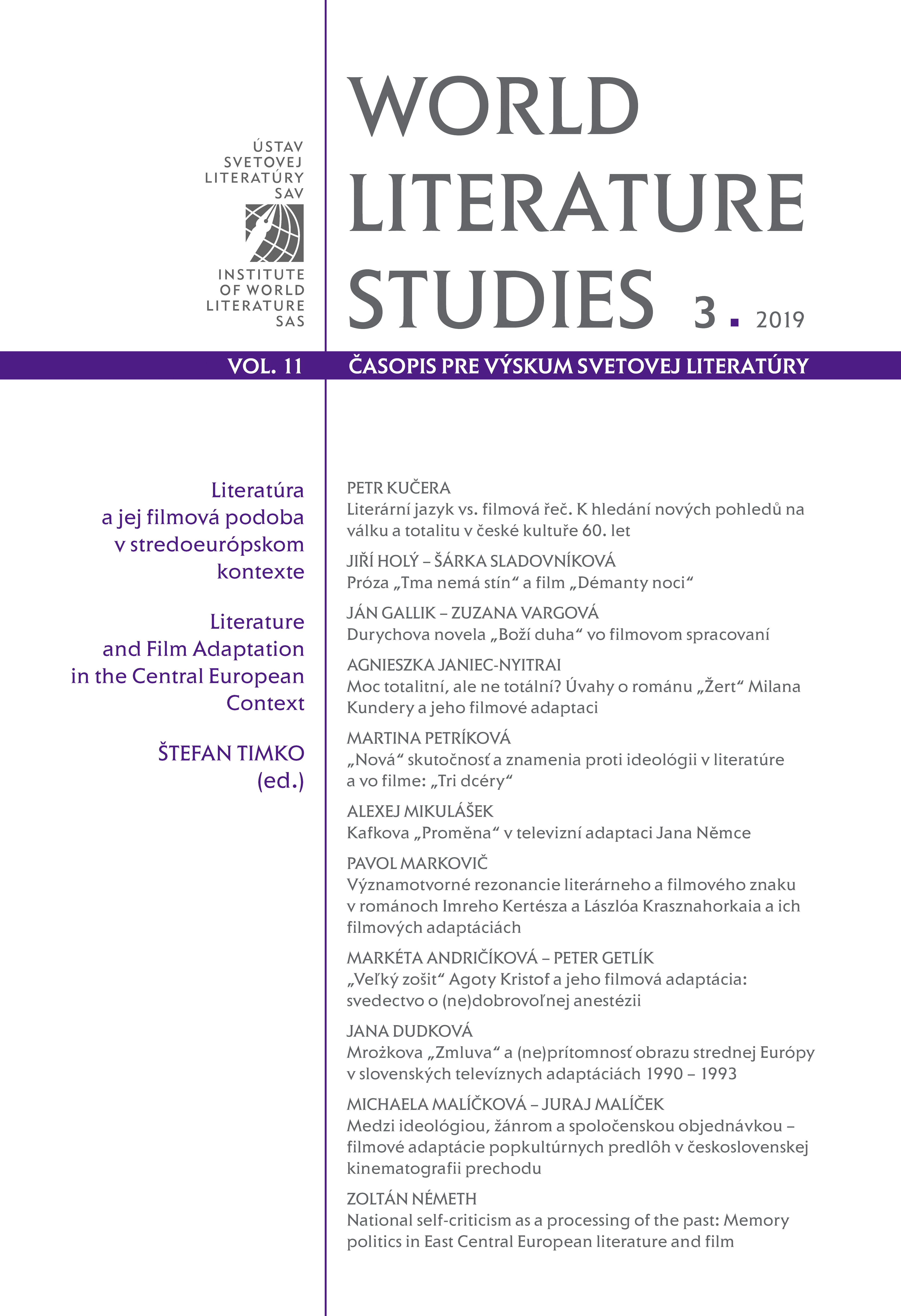
We kindly inform you that, as long as the subject affiliation of our 300.000+ articles is in progress, you might get unsufficient or no results on your third level or second level search. In this case, please broaden your search criteria.


This article analyses the specific case of the Slovak television adaptation of Sławomir Mrożek’ slesser-known stage play The Contract (1986). The play was written before the fall of communismby the famous Polish exile playwright, and was shot for Slovak television in 1992 bythe ex-Yugoslav director Goran Marojević. This resulted in multiple shifts in the meaningsand visibility of various geopolitical concepts used in the play, including a reduction of referencesthat could render the director’s origin more visible. The paper focuses especially on thereplacement of significant references to Balkan and Orientalist discourse (which are parodicallyoverused in the play) with the more readable concept of Central Europe (which staysunnamed in the play). In the final section, the paper also analyses the position of The Contractwithin the broader context of contemporary Slovak television production, which usuallyavoided Central European authors or direct images of Central Europe, but on the other handadded indirect references to the concept of Central Europe even to works which originallylacked them. The result in both cases was the frequent usage of allegorical meanings, maskingor inversion that followed uncertainties typical for transition from the announcement ofSoviet perestroika to (un)expected post-communist condition.
More...
The aim of the article is to analyze and attempt to classify two juvenile texts by Julian Kornhauser which refer to painting works – Martwa natura z kompotierką (Bernard Buffet) and Guernica (Pablo Picasso). By delving into the works of the author of Origami, it is worth devoting a moment of attention to the images, as painting remains an extremely important source of reference for this work. However, the selected examples for analysis do not fit within the definitional framework of ekphrasis or hypotyposis. Importantly, the analysis of the selected texts also leads to the discovery of poetic connections between Kornhauser and surrealism, mainly in the Bretonian edition, thus allowing for the identification of interpretative sign posts that prove to be extremely helpful while reading subsequent, especially those published in the 1970s, poems and novels by the author of Zjadacze kartofli. The interpretation of juvenile poems therefore justifies the search in this work not only for experiments that elude methodological delimitations but also serves as evidence of correlations between Kornhauser’s poetry and avant-garde poetics.
More...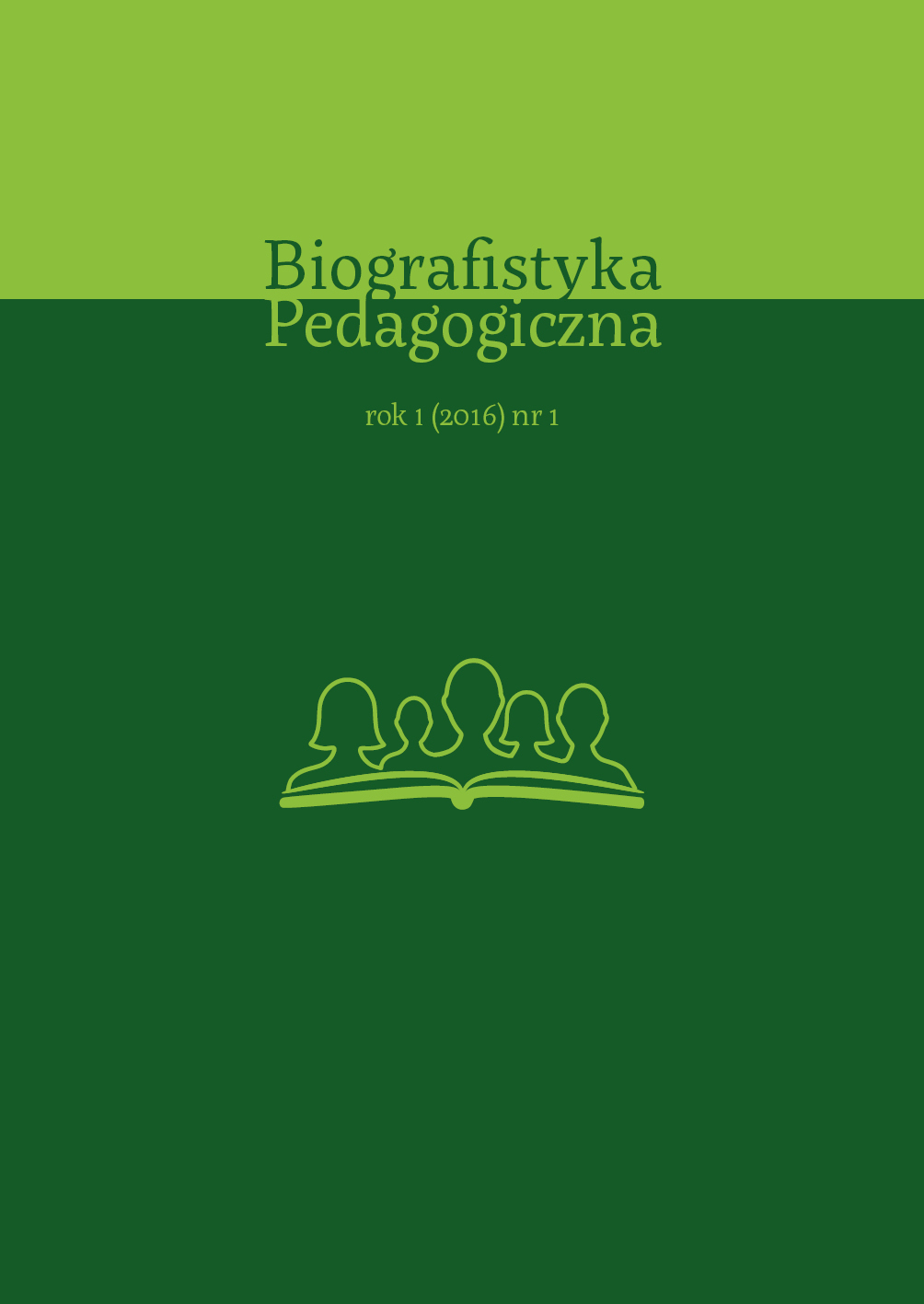
Jan Matejko (1838–1893) był znakomitym portrecistą. W niezwykły sposób potrafił oddać cechy charakteru i stany emocjonalne portretowanych osób. Istotę portretu widział w ukazaniu pełnej wiedzy o człowieku. Wczesne portrety to przede wszystkim wizerunki krewnych i przyjaciół. Stworzył również własne portrety. Od wczesnych malowanych w wieku kilkunastu lat po studenckie aż do tych powstałych w ostatnich latach życia. Ostatnie z nich nazywane były przez krytyków „magicznym kluczem do jego skomplikowanej duszy”. Poza tymi wizerunkami rysy własnej twarzy nadał Matejko postaciom występującym w jego dziełach.Autoportrety malarza w świetle zachowanych źródeł epistolograficznych, pamiętnikarskich i dziennika prowadzonego przez sekretarza Matejki składają się na niezwykle interesującą autobiografię z kluczem artysty urodzonego w rodzinie emigrantów, na pograniczu kultur.
More...
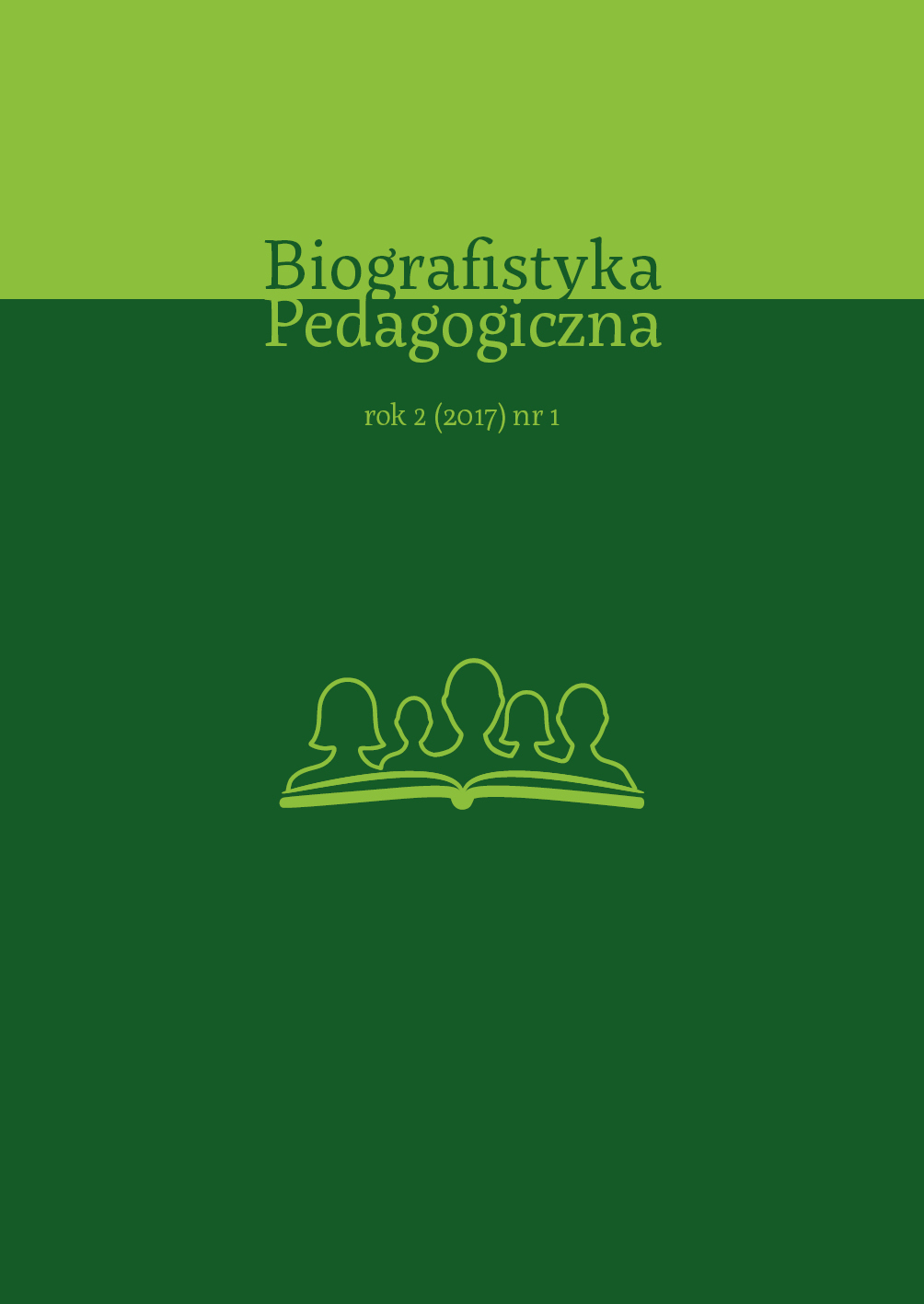
Zofia Grothówna pochodziła z Rzeżuśni, wsi należącej obecnie do powiatu miechowskiego w województwie małopolskim. O wczesnych latach życia przyszłej ksieni wiemy niewiele poza tym, że rodzicami jej byli Aleksander Groth herbu Rawicz i Katarzyna Kozubska. Dokładnej daty urodzin przyszłej ksieni klasztoru imbramowickiego także nie znamy. Nowicjat w klasztorze w Imbramowicach rozpoczęła w 1691 r.Po ustąpieniu z urzędu ksieni Krystyny Oraczewskej, sprawującej tę godność od 1688 r., Zofia Grothówna wybrana została na to stanowisko dnia 7 sierpnia 1703 r. w obecności księży Dominka Lochmana, archiprezbitera krakowskiego i komisarza klasztoru, oraz kanonika krakowskiego księdza Marcina Węgrzynowicza.Niemal przez cały okres swojego przełożeństwa zajmowała się odbudową kościoła i klasztoru w Imbramowicach po wielkim pożarze, który miał miejsce dnia 28 lipca 1710 r.Do prac architektonicznych i związanych z wyposażeniem wnętrz, zatrudniła najlepszych artystów tamtego okresu: architekta Kacpra Bażankę, rzeźbiarza Antoniego Frączkiewicza i malarza z mieszkającego w Krakowie – Wilhelma Włocha.Zofia Grothówna spisywać zaczęła kronikę klasztorną. Nie pozostawała obojętna na los swych poddanych. Budowała chaty, przekazywała zboże, w 1735 r. założyła „Górę Pobożności” dla biednych, aby mogli pożyczać pieniądze na kupno wołów i koni. Za czasów Zofii Grothówny w Imbramowicach działała prężnie szkoła klasztorna – instytut dla dziewcząt. Także za czasów ksieni Grothówny powołano przy klasztorze bractwo modlitewno – pokutne pw. św. Anny.Zmarła dnia 31 maja 1741 r., pochowana jest w klasztorze w Imbramowicach.
More...
Wincenty Pol, człowiek pochodzenia niemiecko-francuskiego, bohaterski powstaniec listopadowy, uznany twórca poezji patriotycznej, więzień w 1846 r., mężczyzna tracący wzrok, na skutek pomówienia w 1851 r. został pozbawiony stanowiska profesora Uniwersytetu Jagiellońskiego, a jednocześnie nasiliła się krytyka jego poezji. W 1854 r. ukazał się jego poemat Wit Stwosz – autobiograficzne wyznanie ociemniałego geniusza średniowiecznego, a zarazem Polaka w obcej mu Norymberdze. Utrwaliło się odczytanie tego poematu jako autobiograficznej wypowiedzi samego Pola.Nie ulega wątpliwości, że poemat jest poetycką adaptacją francuskiego gatunku biografii artysty, tzw. livret. Fikcjonalna fabuła poematu Pola skłania do poszukiwania „figury autobiograficznej” (Philippe Lejeune). Lecz taka interpretacja być może jest tu tylko wtórnym nałożeniem literackich stereotypów romantyzmu, czyli „literaturą w funkcji negatywnej” (Wolfgang Iser). W istocie bowiem u Pola nie to co aktualne i jednorazowe, nie „ja” jako uniwersum, lecz uniwersum sztuki i religii ma być kontemplowane.
More...

Prace, szkice i notatki Edmunda Bojanowskiego. Inedita, t. 1–2, red. Edward Gigilewicz, s. Maria Loyola Opiela, Lublin 2016, t. 1, s. 891, t. 2, s. 1006,plus Prace, szkice i notatki Edmunda Bojanowskiego. Inedita. Indeksy, opracowała Weronika Gigilewicz, Lublin 2016, s. 63
More...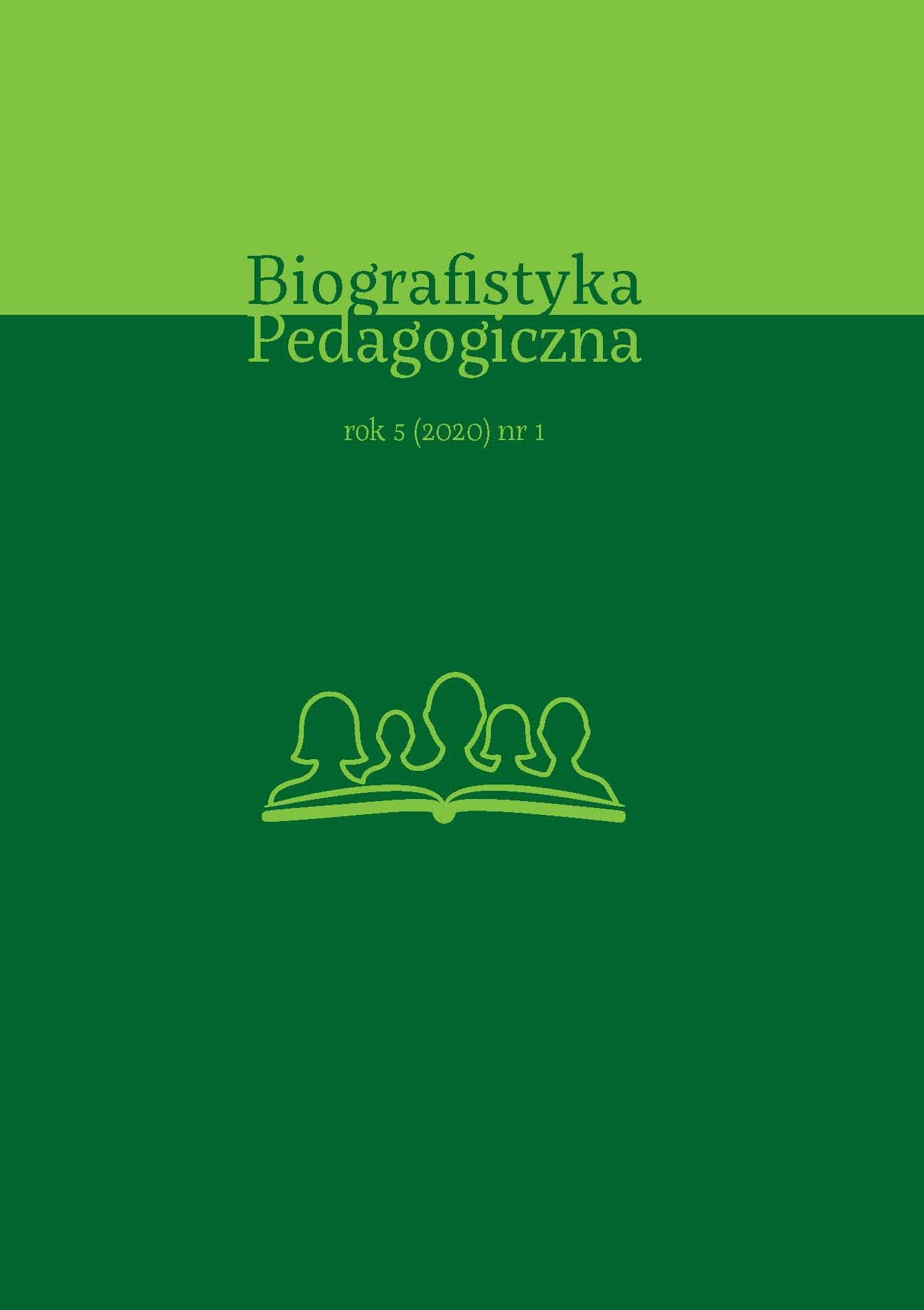
Rocznica urodzin Mikołaja Reja w 1905 r. to jeden z jubileuszy XIX i początku XX w., podczas których w przypominano w duchu patriotycznym dzieje dawnej Rzeczypospolitej oraz przedstawiano dawnych pisarzy polskich jako wzorce osobowe, a ich twórczość jako wychowawczą. Opublikowano wówczas liczne prace historycznoliterackie, edytorskie i popularyzatorskie, a także oświatowo-wychowawcze. Biografię staropolskiego pisarza wykorzystywano w nich w celach pedagogicznych. Artykuł analizuje trzy przykłady publikacji dla dzieci i młodzieży oraz ludu. Ukazuje, w jaki sposób ich autorzy przezwyciężali trudności ideowe i pedagogiczne (związane ze stereotypem Reja-nieuka oraz z zaangażowaniem pisarza w spory religijne XVI w.), aby przedstawiać go jako wzór do naśladowania i patrona współczesnej pracy oświatowej.
More...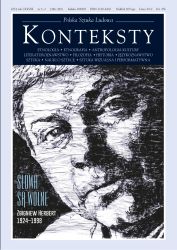
This is an edition of the correspondence between Zygmunt Mycielski and Zbigniew Herbert, covering the years 1972–1984, preceded by an introduction. The content of the letters centres around the composer's plans to compose a song cycle to the poet's words. Ultimately, two Mycielski's works are inspired by Herbert's poems – Six Songs for orchestra (1978) and Eight Songs to words by Zbigniew Herbert for baritone and piano (1984). These works, like the letters published here in full, remain a valuable testimony to the relationship between the poet and composer, drawing an important trace of mutual artistic inspiration.
More...
The article reflects on the author's personal encounters with the renowned Polish poet Zbigniew Herbert, beginning with an introduction to his parents' friends, Irena and Tadeusz Byrski, who introduced the author to Herbert in 1966. The Byrskis shared anecdotes about Herbert, highlighting his sense of humor and personal connection to other literary figures like Czesław Miłosz. The author recounts their first meeting with Herbert, where they shared poetry, and the profound impact it had on him. Subsequent meetings included a tribute to the late actor Juliusz Osterwa, where the author found Herbert's performance disappointing due to its overemphasis. Later, during a difficult period in Poland, Herbert held a reading in a church, which resonated deeply with the audience, offering them courage and solace. The final encounter was at Herbert's funeral in 1998, where the author reflects on the emotional atmosphere, the presence of notable figures, and a distasteful comment made by a fellow attendee regarding the Nobel Prize, emphasizing the complicated legacy of literary recognition. The author concludes with a somber reflection on Herbert's enduring influence through his poetry.
More...
From text to life – this is the direction that delineates a trajectory conducted by Józef Czapski reading "À la recherche du temps perdu" by Marcel Proust. Turning to diary notes ("Wyrwane strony" and "Dziennik wojenny") and sketches the author of the article discusses the manner in which Czapski rendered Proust an instrument of recognition: finding a bearing in one’s creative work (successes, failures, crises), in life and experiences: emotions, affects, sensations, and passions. The sketch "Proust w Griazowcu", situated in this perspective – a record of lectures on "À la recherche du temps perdu" and conducted by Czapski in a Soviet prisoner of-war camp at the turn of 1940–1941 – is presented not solely as yet another evidence of “intoxication by Proust” but predominantly as a performative text. In it Czapski creates himself as a causative subject.
More...
The starting point for this text (from Anna Sobolewska’s series) is a stay in Zakopane and a reflection on the changing character of this city and the complex relationship between place and the poetic word.
More...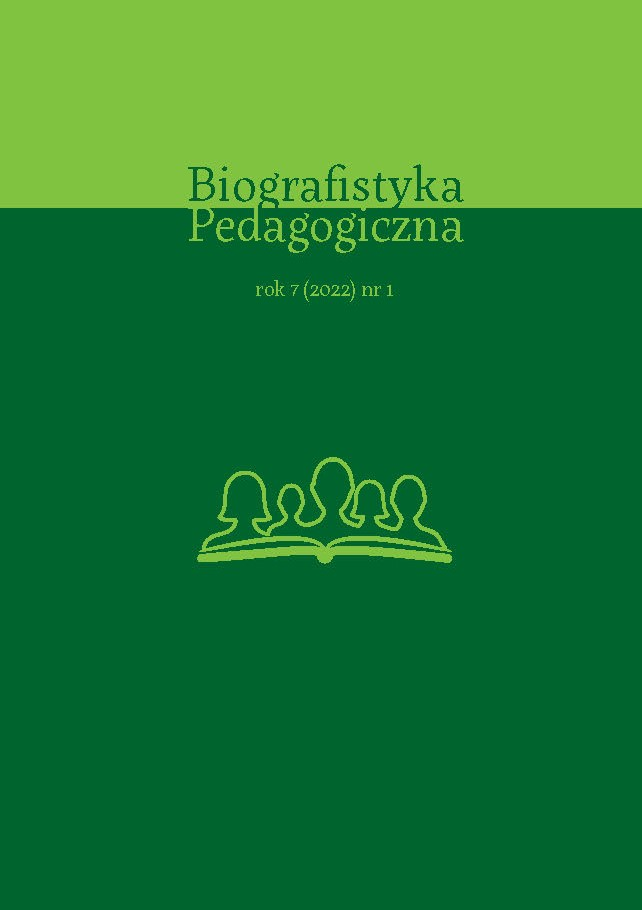
The article points out the symbolic consequences of the return of Adam Mickiewicz – the most important Polish romantic poet – to Poland in the period of the November Uprising (1831). His overly prolonged stay in the Greater Poland region, while the capital Warsaw collapsed under Russian force, was treated by various patriots as evidence of his betrayal of the Polish case. This stage of a great national debate on the moral attitude of the romantic writers ends with the solemn funeral of Mickiewicz at the royal Wawel Castle in 1890, when his body was transferred from the family grave in Montmorency (France). This funeral concludes the return of the poet Adam Mickiewicz to Poland and it makes of him a symbol of the independence of the Polish state.
More...
The paper deals with the question of return from a twofold perspective: the impossibility of a return of the Polish nation to the pre-World War II socio-political situation and that of a return to life for those who came out of the German death camps. The first part of the article deals with the issue of the disappearance of pre-war Poland in the perception of writers such as Miron Białoszewski, Tadeusz Drewnowski, Tadeusz Konwicki, Czesław Miłosz. In the second, the phenomenon of the “survival without a nostos” of those who survived the Lagers is analysed from a broad comparative perspective by studying the works of Jean Améry, Robert Antelme, Tadeusz Borowski, Viktor E. Frankl, Vasilij Grossman, Imre Kertèsz, Primo Levi, Liana Millu, Krystyna Żywulska.
More...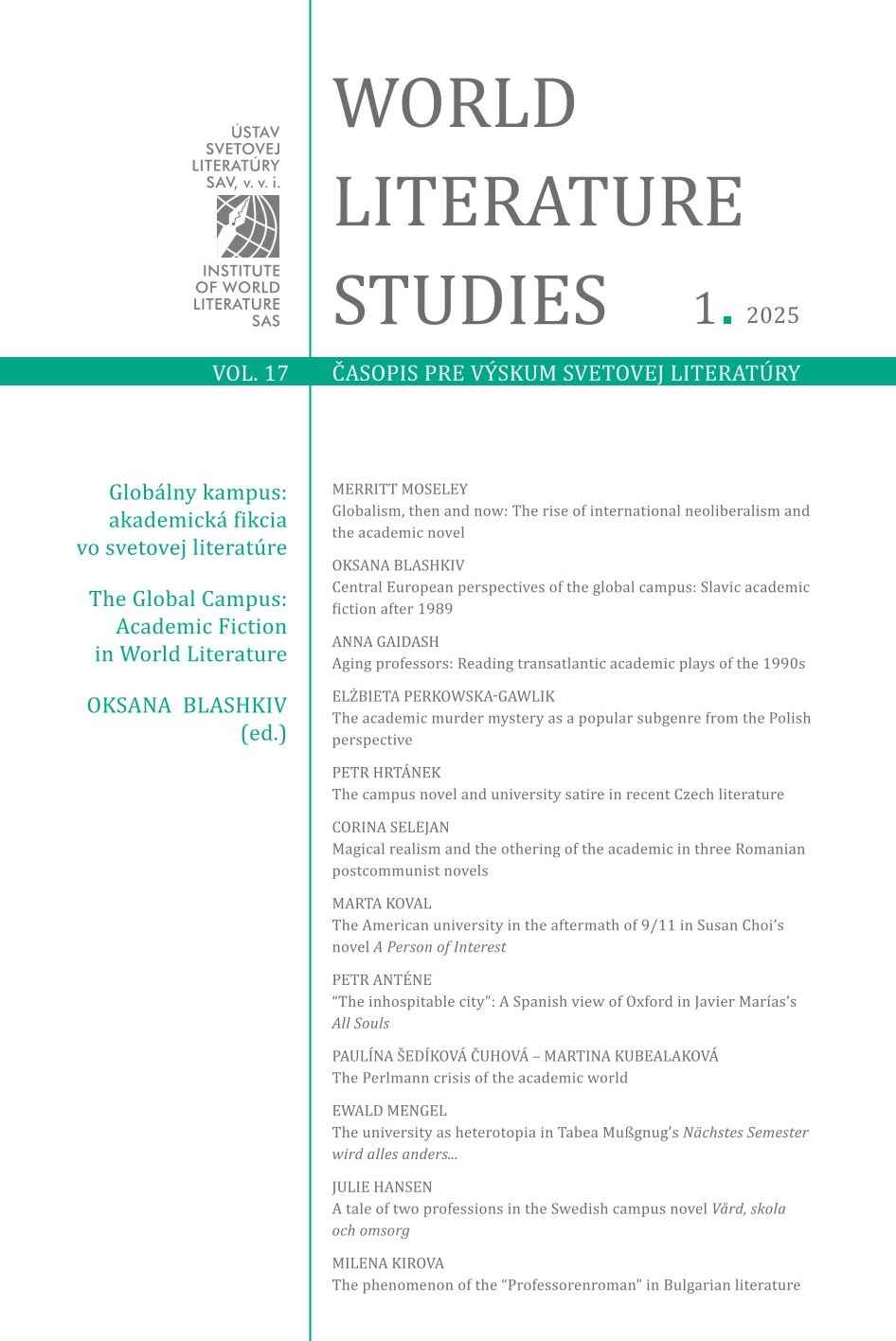
The article discusses non-Anglophone campus fiction based on contemporary Slavic academic fiction. The author maintains that for the study of Slavic campus fiction in the context of world literature, the methodology of area studies and comparative literature is productive since it presents necessary tools for interdisciplinary research. This idea is illustrated by campus fiction written in the countries of Central Europe. The article discussed generic peculiarities of Slavic campus fiction, which primarily is constituted by the socio-cultural context of the area’s university history and the themes, therefore, dealt with by the novels. As the themes common for Czech, Slovak, Polish, and Ukrainian campus fiction the author specifies the problem of identity, cultural memory, and the university’s contemporary challenges. Among the specific features identified in these national literatures, campus metafiction by Slovak and Polish writers is mentioned. The author concludes that Slavic campus fiction offers a unique lens on multilingualism and hybrid identities, shaped by Europe’s intricate history and opens up new possibilities for further research.
More...
In his chapter devoted to academic mystery fiction included in Critical Survey of Mystery and Detective Fiction (2008), Joseph Rosenblum notices that the substantial collection of academic mystery novels gathered by John E. Kramer in his annotated bibliography Academe in Mystery and Detective Fiction (2000) illustrates the prophetic nature of John Donne’s observation regarding universities as an ideal setting for crime stories. Murder mysteries set in academia constitute a thriving subgenre of academic novels, with many works written by authors connected in some way to British and American tertiary education institutions. While universities in other countries also offer compelling material for novelists, there appears to be a certain kind of reluctance among, for instance, Polish scholars to divulge academic matters to the general public, or to satirize their colleagues for fear of becoming subjects of ridicule themselves, or, even worse, to become depicted as either a victim or a perpetrator of a hideous crime committed within university walls. Nevertheless, there are authors who have chosen to explore the landscape of Polish universities, considering it a fertile ground for constructing captivating mystery plots, albeit, hopefully, without any real-life homicides to serve as inspiration.
More...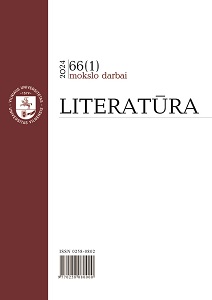
Review of: Reda Griškaitė, Moteris ir istorija: Kamilės Narbutaitės patirtys: monografija, Vilnius: Lietuvos istorijos institutas, 2023, 1172 p.
More...